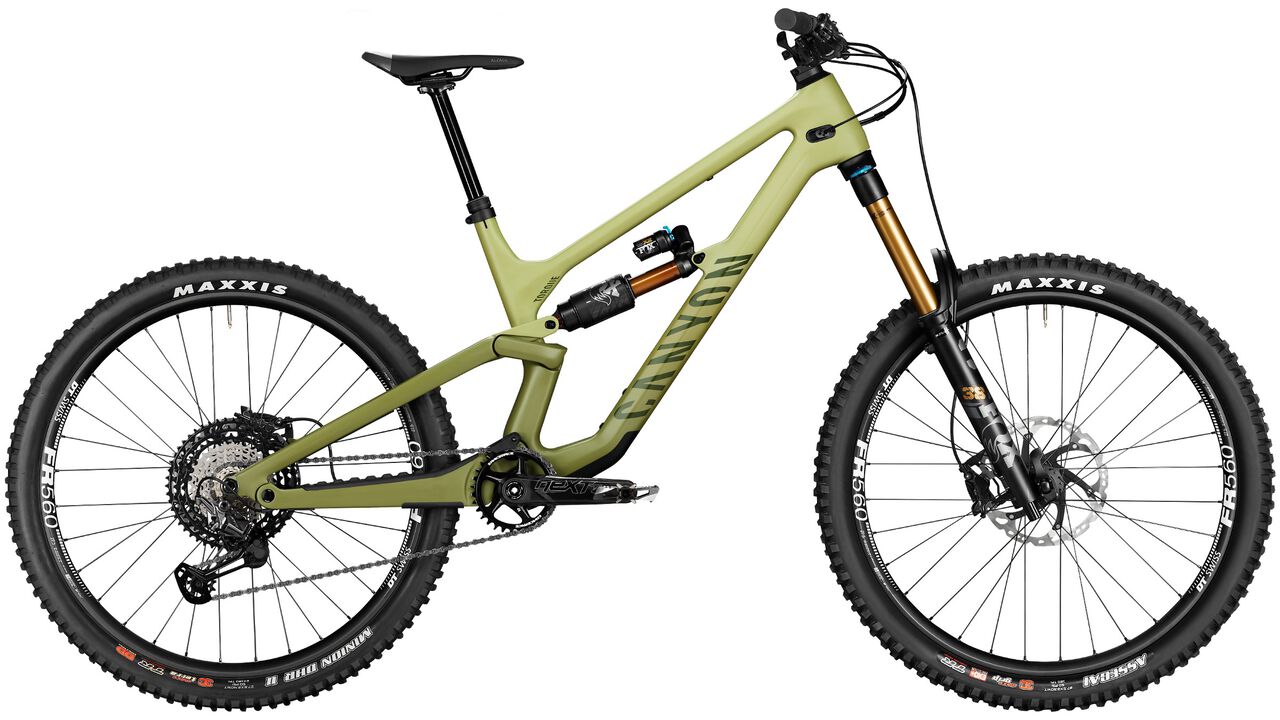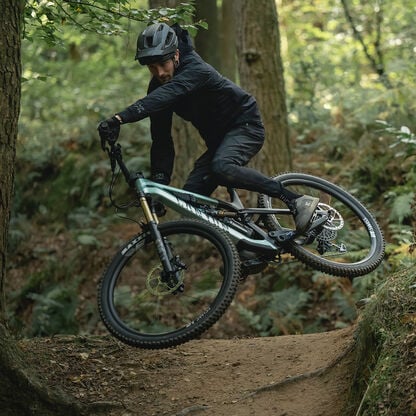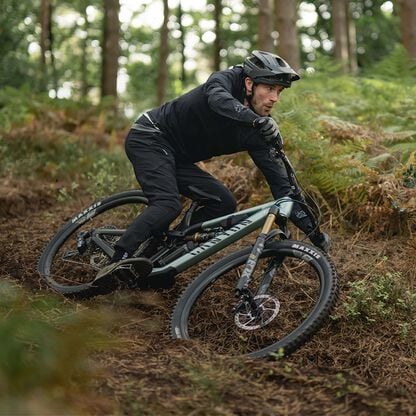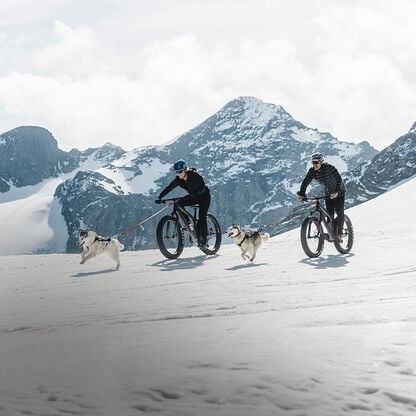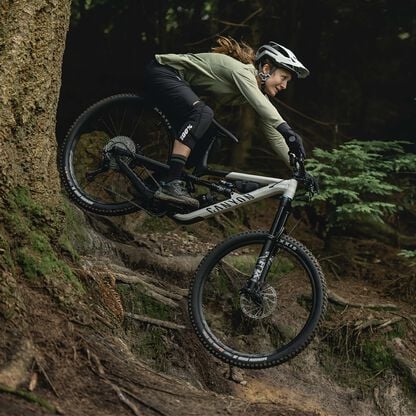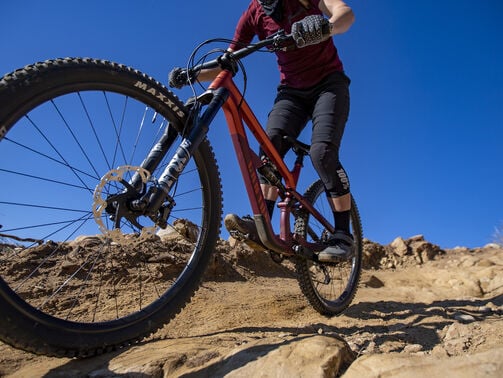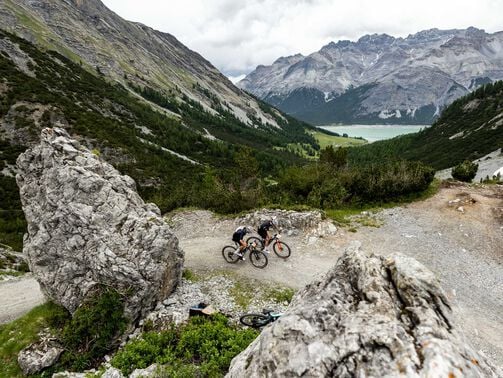Should you buy a carbon or aluminium MTB?
What's best: carbon or aluminium MTBs? We chat to our engineers about the benefits of both frame materials.


When you’re in the market for a new mountain bike, you will have a number of frame materials to choose from: steel, titanium, aluminium or carbon. Each material has its merits, however when it comes to the crunch, which one should you choose?
Canyon has made a name for itself in premium quality aluminium and carbon bikes. While the debate of carbon vs. aluminium road bikes is well documented and discussed, it’s less so in regard to mountain bikes.
Frames are the most important part of a bike and make a huge difference to the overall ride feel. The days of heavy, cumbersome mountain bikes are long gone with the invention of light, stiff and readily available materials.
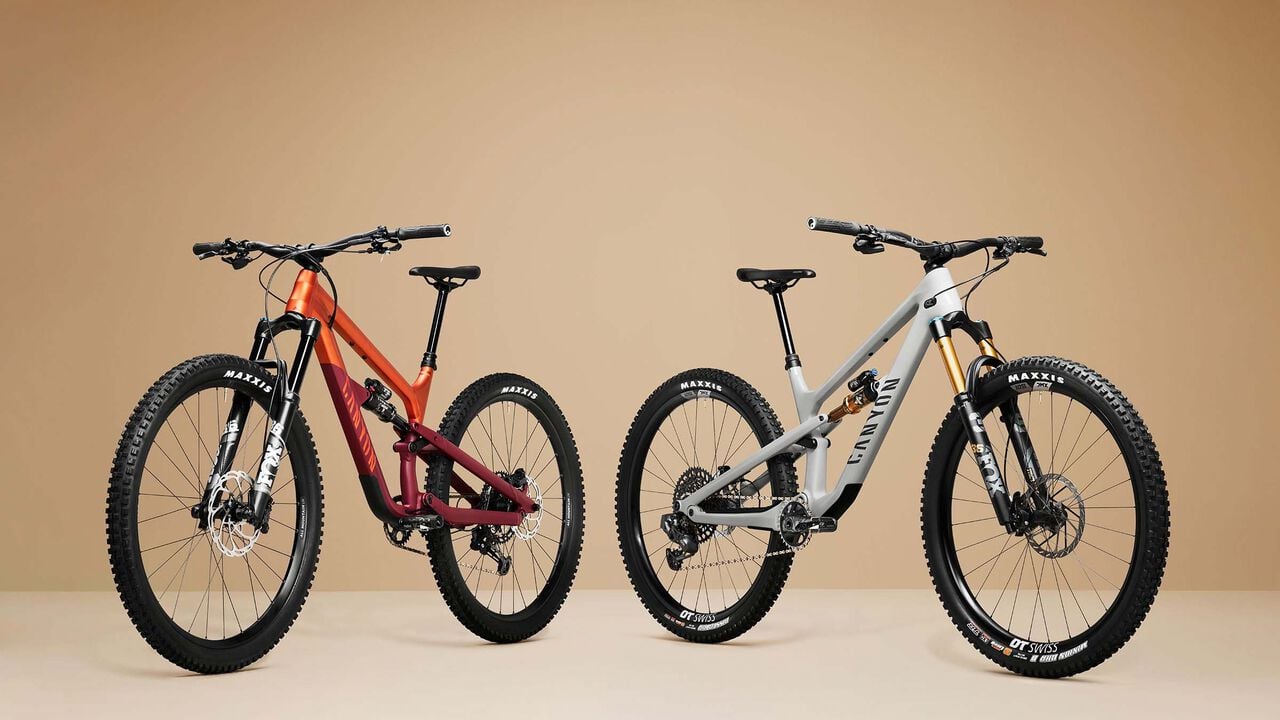
A (very) brief history of MTB frame materials
The first purpose-built mountain bike was made from steel. The first mass-produced mountain bike was also made from steel. Many boutique mountain bike brands still produce very capable steel bikes today, and you’ll often see them around your local trail centres.
In the 1970s, aluminium came to the fore as a durable, reliable material suitable for high production volumes. Though it was initially priced at a premium, overseas production soon improved the pricing for the consumer and it became mainstream fairly quickly.
Aluminium paved the way for lightweight, nimble and affordable mountain bikes and they’re still celebrated for these characteristics today.
Early carbon fibre prototypes can be seen racing the downhill circuit as early as the 1990s. Carbon mountain bikes became popular at the start of the 21st century. It has the highest strength to weight ratio and has unparalleled levels of stiffness compared to other materials. Carbon is manufactured by laying up sheets of fabric into a mould. This means it’s possible to fully optimise and customise the frame shape beyond the typical circular tubes on metal bikes.
Titanium has the strength of steel but is lighter in weight. It’s a shock absorbing material which will soften the blow of a rocky ride without compromising its shape. It is however very expensive compared to the other frame materials.
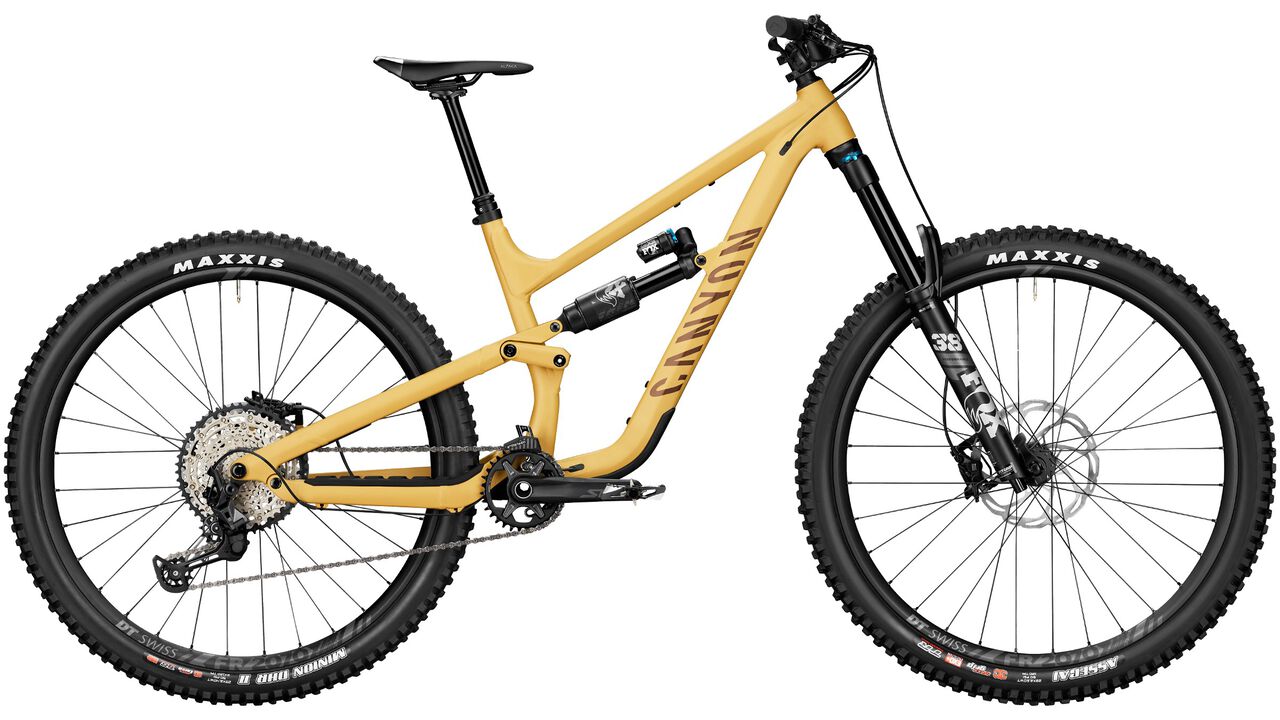
Canyon mountain bikes
Pros of aluminium mountain bikes
The primary reasons for getting an aluminium mountain bike are:
-
Strength, weight and stiffness
-
Simplicity
-
Price
Aluminium mountain bikes are an ideal choice for riders who want a no-frills riding experience. They have all the features you’d ever want and nothing you don’t necessarily need. While the design of the same bike looks very different to the equivalent carbon fibre mountain bike, the ride will still be just as fun.
We asked our Product Development Engineer Lorenz Lay why he chooses aluminium for his mountain bikes. “Aluminium means you’re getting a simplified ride, fewer adjustments and therefore less to worry about,” he says. “If you just want a good, care-free time in the woods and don’t feel the need for fancy added extras, go for AL every day.”
Aluminium is a very affordable material nowadays. If you’re on a budget or just starting out in the sport, aluminium-framed mountain bikes are often very wallet-friendly. The balance of strength, stiffness and weight alongside price makes aluminium bikes very desirable. Canyon takes the time to make sure its AL frames go the distance. With neat solutions such as steel threads at each pivot point, you can repair any mechanical mishaps easily.
Aluminium mountain bikes
Explore all the AL MTBs here: Spectral, Stitched, Grand Canyon and many more!
View allPros of carbon mountain bikes
The two major reasons for choosing carbon fibre are:
-
Strength, weight and stiffness
-
Design
Carbon fibre is a very popular material for mountain bikes due to its strength, stiffness and weight. While it’s easier to fine tune the stiffness of a carbon mountain bike, our aluminium bikes are engineered for the exact same ride experience.
Carbon fibre mountain bikes have a seamless design, which can be aesthetically pleasing to some riders. The absence of welds gives a smooth and clean look to the bike. Carbon MTBs challenge what’s possible when it comes to the perfect ride quality at a minimal weight, all while retaining trail-proof strength.





Which Canyon MTBs are available in both aluminium and carbon?
We want to make performance bikes accessible to everyone regardless of budget. That’s why we’ve launched our Spectral, Spectral 125 and Torque models in both aluminium and carbon.
Both of our Spectral models are available with a robust aluminium frame or a lightweight carbon fibre frame. The choice is yours when it comes to this poppy and playful range of trail mountain bikes. “The Spectral AL is 400-500 grams heavier than the CF version but that isn’t always a bad thing,” says Lorenz. Weight is only half the story when it comes to the riding experience on the trail. Stiffness geometry and kinematics play a role in how a bike rides and how it climbs uphill. The team of engineers and product developers have worked hard to ensure our AL bikes match the performance of the CF as close as possible.
Finally, the Canyon Torque is a force to be reckoned with no matter which frame material you choose. Get big thrills for fewer bills on the AL models or take your shred to the next level on our carbon fibre frames.
Which frame material is for me?
If you’re on a budget and want the best bang for buck, an aluminium frame will pack in a lot of fun. What you save on the cost of the bike itself, you can spend on some flash new mountain bike kit and accessories for your new ride.
If you want the premium look and an exceptional ride quality, a carbon mountain bike might just be what you’re after. Whether you’re looking to take your skills to the next level or simply want to treat yourself to the latest in mountain bike technology, a carbon MTB can do it all.
Discover our Mountain Bikes
Did this article help?
Thank you for your feedback
